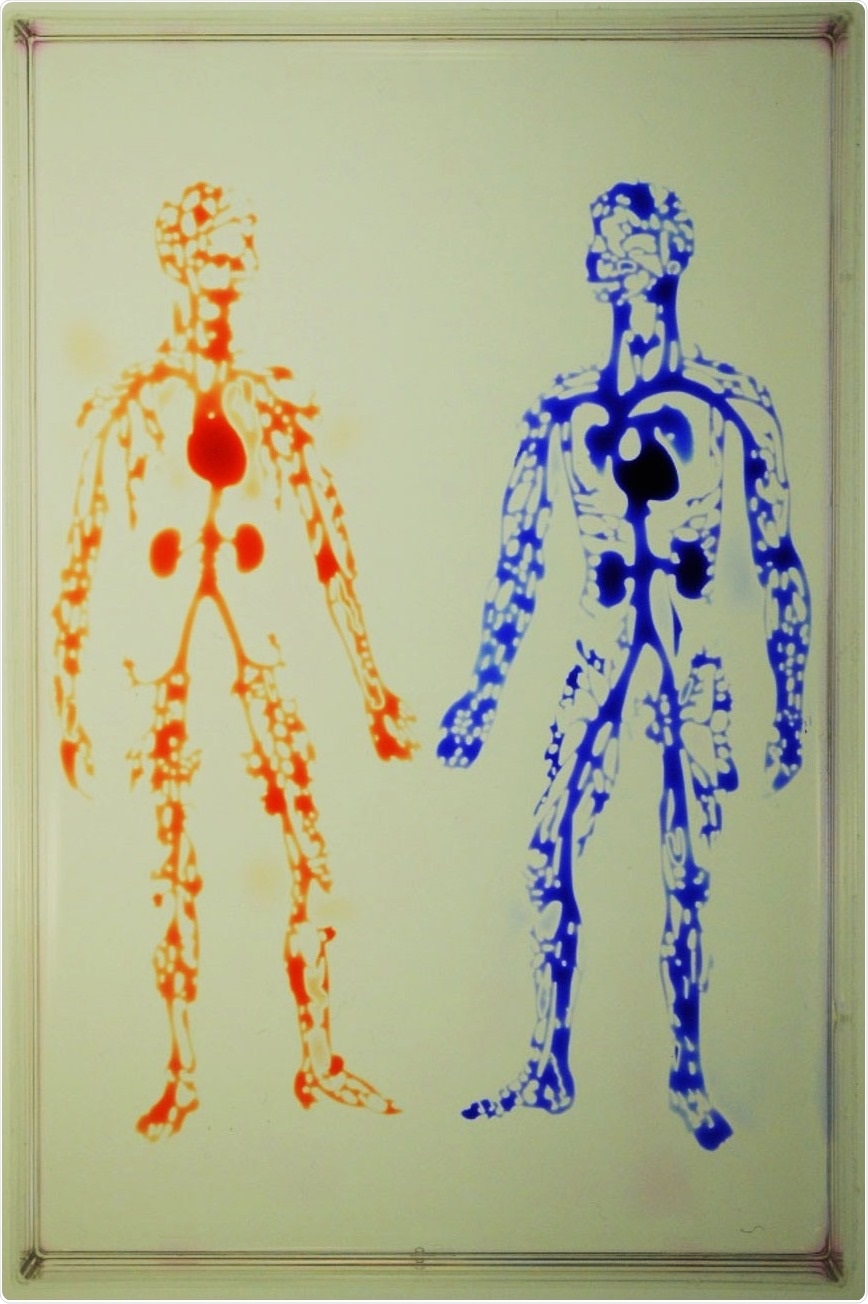Jet-printing microfluidic devices on demand – a new paper from engineering and biomedical scientists at the University of Oxford and spin-out company iotaSciences Ltd – describes a game-changing method to generate cell-friendly microfluidic devices on demand.
This innovative protocol offers significant benefits to biology and biomedicine, enabling simple, contactless fabrication of microfluidic circuits in minutes – almost as quickly as the circuit pattern can be drawn on paper – using truly cell-friendly materials; standard Petri dishes and culture media.

Walls made of a clear immiscible liquid, fabricated by jetting, confine red and blue dyes filling the ‘arteries’ and ‘veins’.
The pioneering jet-printing method stems from the recognition that gravity becomes irrelevant at the microscale. In the everyday world, objects are invariably made with solids; building complex structures out of liquids, which would collapse into puddles and drain away, is not feasible.
Using microjets to fabricate microfluidic devices takes advantage of the interfacial forces that dominate in the microworld. In this paper, the method was used to successfully clone cells by limiting dilution in a way that beats the Poisson limit, to subculture adherent cells, and to feed arrays of cells continuously for a week in sub-microliter chambers. Liquid flows were driven through conduits with and without external pumps, and circuits reconfigured to open and close ‘fluidic valves’ at will. The diversity and flexibility of this approach is expected to lead to widespread adoption of the technique for a variety of applications in biomedicine.
This open access paper was published on the 26th of October and is available to download at https://onlinelibrary.wiley.com/doi/full/10.1002/advs.202001854